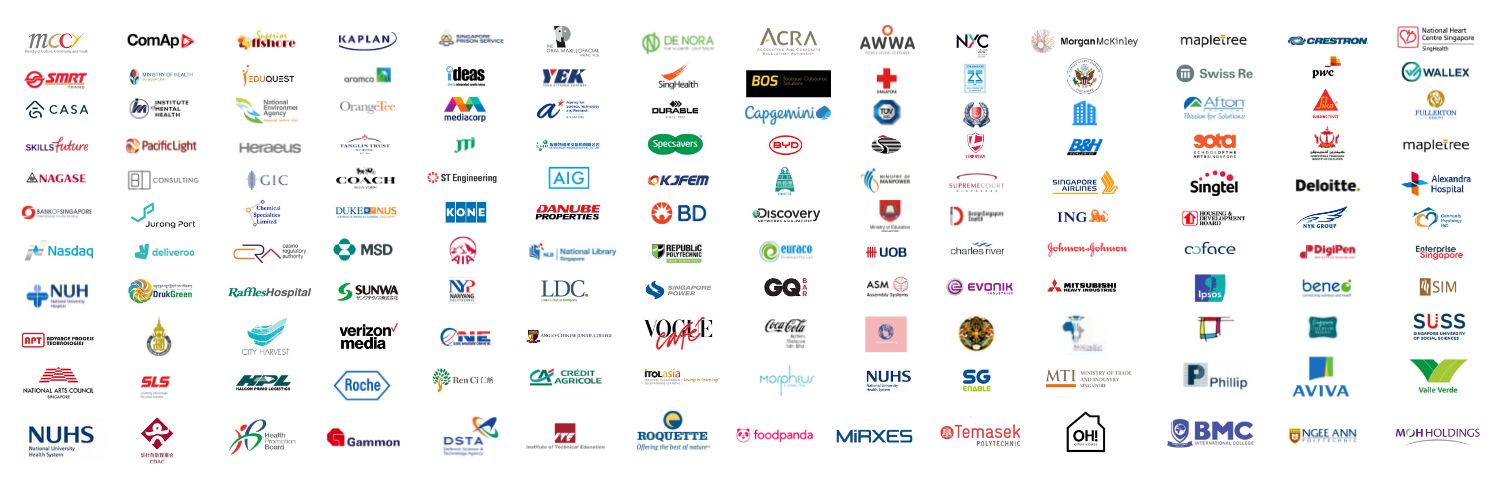Crisis Leadership Training Course in Japan
Our Leadership Courses in Japan is also available in Tokyo, Yokohama, Osaka, Nagoya, Sapporo, Fukuoka, Kawasaki, Kobe, Kyoto, Saitama, Hiroshima, Sendai, Chiba, Kitakyushu, Sakai, Niigata, Hamamatsu, Okayama, Kumamoto, Shizuoka, Kagoshima, Himeji, Utsunomiya, Matsuyama, Nara, Toyama, Kurashiki, Takamatsu, Kanazawa, Oita, Naha (Okinawa), Nagasaki, Kanazawa, Hakodate, Nikko, Nara, Kamakura, Takayama, Nikko.
Welcome to the forefront of resilience and strategic leadership with the “Crisis Leadership Training Course in Japan.” In a world of uncertainty, effective crisis leadership is indispensable, and nowhere is this more vital than in the dynamic landscape of Japan. This course is your gateway to mastering the art of navigating tumultuous waters with poise, adaptability, and cultural sensitivity, ensuring your readiness to lead in times of adversity.
Embark on a journey that transcends theoretical concepts to provide practical insights rooted in the unique context of Japan. Here, amidst the juxtaposition of tradition and innovation, crisis leadership takes on a nuanced dimension, shaped by cultural intricacies and societal norms. From natural disasters to economic downturns, Japan’s history is replete with instances that underscore the importance of proactive and decisive leadership in times of crisis.
Throughout this course, you’ll delve into the multifaceted facets of crisis management, exploring topics ranging from risk assessment and scenario planning to crisis communication and stakeholder engagement. Guided by industry experts and seasoned practitioners, you’ll gain invaluable skills and strategies to anticipate, mitigate, and respond to crises effectively. Moreover, you’ll have the opportunity to engage in immersive simulations and case studies, honing your decision-making abilities under pressure and preparing you for real-world scenarios.
Join us as we embark on a journey towards leadership excellence and resilience in the face of adversity. Together, let’s navigate the challenges of today and tomorrow with confidence and conviction, empowered by the insights and expertise of the “Crisis Leadership Training Course in Japan.”
Who Should Attend this Crisis Leadership Training Course in Japan
In the face of adversity, effective crisis leadership becomes the cornerstone of organisational resilience and recovery. Introducing the “Crisis Leadership Training Course in Japan,” where participants embark on a transformative journey to hone their strategic leadership skills amidst the unique challenges of the Japanese business landscape. This comprehensive course is designed to equip leaders with the tools, insights, and confidence needed to navigate crises with clarity, resilience, and cultural sensitivity.
Corporate executives, senior managers, government officials, emergency responders, and risk management professionals are just a few examples of those who may find immense value in this course. Whether you’re leading a multinational corporation with operations in Japan, overseeing public safety initiatives, or tasked with managing crisis communication for a government agency, the principles and strategies covered in this course are universally applicable. Join us as we delve into the complexities of crisis leadership within the Japanese context, empowering you to lead with confidence and effectiveness in times of turmoil.
The “Crisis Leadership Training Course in Japan” offers a unique opportunity to not only enhance your leadership capabilities but also contribute to the resilience and preparedness of your organisation. Together, let’s rise to the challenge and redefine crisis leadership for a brighter, more resilient future in Japan and beyond.
- Executives
- Team Leaders
- Entrepreneurs
- Educators
- Recent Graduates
Course Duration for Crisis Leadership Training Course in Japan
Delve into the essential principles of crisis leadership with the “Crisis Leadership Training Course in Japan,” tailored to fit your schedule. Whether you opt for our immersive 3 full-day programme, intensive 1-day session, concise half-day workshop, or focused 90-minute and 60-minute modules, the “Crisis Leadership Training Course in Japan” ensures you receive comprehensive training to navigate crises effectively within any timeframe. Join us and equip yourself with the essential skills needed to lead with confidence and resilience in times of adversity.
- 2 Full Days
- 9 a.m to 5 p.m
Course Benefits of Crisis Leadership Training Course in Japan
Unlock the essential skills and strategies needed to navigate crises effectively with the “Crisis Leadership Training Course in Japan.”
- Develop resilience and adaptability in the face of adversity.
- Enhance decision-making abilities under pressure.
- Improve crisis communication and stakeholder management skills.
- Foster team cohesion and collaboration during times of uncertainty.
- Minimize disruption to business operations and mitigate risks.
- Gain confidence in leading through challenging situations.
- Build trust and credibility with stakeholders and the public.
- Learn from real-world case studies and simulations.
- Develop a proactive approach to crisis prevention and preparedness.
- Position yourself as a trusted leader in crisis situations.
Course Objectives for Crisis Leadership Training Course in Japan
Equip yourself with the essential skills and knowledge needed to become an effective crisis leader with the “Crisis Leadership Training Course in Japan.” Throughout this course, participants will:
- Anticipate and assess potential crises before they escalate.
- Develop strategies to maintain business continuity during crises.
- Foster a culture of resilience and preparedness within their organisation.
- Establish effective communication channels for crisis response.
- Implement crisis management protocols tailored to the Japanese context.
- Coordinate with relevant stakeholders and authorities during crises.
- Lead crisis response teams with clarity and decisiveness.
- Evaluate and learn from past crises to improve future response efforts.
- Identify and address vulnerabilities in their organisation’s crisis preparedness.
- Adapt leadership styles to suit different crisis scenarios.
- Build trust and credibility with stakeholders through transparent and timely communication.
- Advocate for resources and support to enhance organisational resilience.
Course Content for Crisis Leadership Training Course in Japan
Unlock the essential principles of crisis leadership with the “Crisis Leadership Training Course in Japan,” tailored to provide comprehensive insights and strategies for navigating crises effectively.
- Anticipating and Assessing Potential Crises:
- Conducting risk assessments to identify potential crisis triggers.
- Monitoring industry trends and external factors that may impact the organisation.
- Developing early warning systems to detect emerging crises.
- Developing Strategies for Business Continuity:
- Creating contingency plans for various crisis scenarios, including natural disasters and cyberattacks.
- Establishing alternative work arrangements and supply chain management strategies to maintain operations during crises.
- Implementing crisis drills and simulations to test the effectiveness of business continuity plans.
- Fostering a Culture of Resilience:
- Providing training and resources to empower employees to identify and respond to crises effectively.
- Encouraging open communication and collaboration across departments to enhance organisational resilience.
- Celebrating successes and learning from failures to foster a culture of continuous improvement.
- Establishing Effective Communication Channels:
- Creating communication protocols and escalation procedures for crisis situations.
- Utilising multiple communication channels, including traditional media, social media, and internal platforms, to reach stakeholders.
- Training spokespersons to deliver clear, consistent, and empathetic messages during crises.
- Implementing Crisis Management Protocols:
- Developing crisis management frameworks and Standard Operating Procedures (SOPs) tailored to the Japanese business environment.
- Establishing crisis management teams and assigning roles and responsibilities to team members.
- Conducting regular reviews and updates of crisis management protocols to ensure relevance and effectiveness.
- Coordinating with Stakeholders and Authorities:
- Building relationships with relevant government agencies, local authorities, and industry partners to facilitate coordination during crises.
- Establishing communication channels and protocols for sharing information and resources with external stakeholders.
- Participating in crisis response exercises and joint training sessions with external partners to enhance coordination and collaboration.
- Leading Crisis Response Teams:
- Providing clear direction and guidance to crisis response teams during high-pressure situations.
- Empowering team members to make informed decisions and take decisive actions to mitigate the impact of crises.
- Delegating tasks and responsibilities effectively to maximise efficiency and effectiveness in crisis response efforts.
- Evaluating and Learning from Past Crises:
- Conducting post-crisis debriefs and analysis to identify strengths, weaknesses, and areas for improvement.
- Documenting lessons learned and best practices to inform future crisis response efforts.
- Implementing corrective actions and enhancements based on post-crisis evaluations to strengthen organisational resilience.
- Identifying and Addressing Vulnerabilities:
- Conducting vulnerability assessments to identify weaknesses in organisational processes, systems, and infrastructure.
- Developing risk mitigation strategies to address identified vulnerabilities and enhance crisis preparedness.
- Implementing measures to strengthen organisational resilience and reduce the likelihood and impact of future crises.
- Adapting Leadership Styles:
- Recognising the dynamic nature of crises and adjusting leadership approaches accordingly.
- Applying situational leadership principles to provide support and guidance to teams based on their needs and the nature of the crisis.
- Emphasising empathy, transparency, and decisiveness in leadership communication and decision-making during crises.
- Building Trust and Credibility:
- Communicating transparently and authentically with stakeholders to build trust and confidence in the organisation’s crisis response efforts.
- Establishing credibility through consistent and reliable actions that demonstrate commitment to stakeholder well-being and organisational values.
- Engaging with stakeholders proactively to address concerns, provide updates, and solicit feedback throughout the crisis response process.
- Advocating for Resources and Support:
- Identifying and articulating the resource needs required to effectively respond to and recover from crises.
- Engaging with senior leadership and key stakeholders to secure the necessary resources and support for crisis preparedness and response efforts.
- Advocating for investments in technology, training, and infrastructure to enhance organisational resilience and crisis management capabilities.
Upcoming Course and Course Brochure Download for Crisis Leadership Training Course in Japan
Stay informed about the latest developments and avail our informative brochures for the “Crisis Leadership Training Course in Japan.” Keep an eye out for upcoming updates on course offerings, schedules, and registration details, as we continue to provide valuable insights and resources to empower leaders in navigating crises effectively. Join us on this journey towards leadership excellence and resilience with the “Crisis Leadership Training Course in Japan.”


